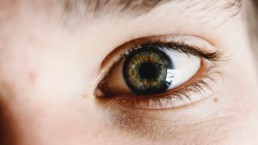It is very important to keep our eyes healthy, as they can come under various conditions that threaten our vision, and more. That’s where an ophthalmologist comes in.
What is an ophthalmologist?
Ophthalmology is the branch of medicine that deals with the anatomy, physiology and diseases of the eye. An ophthalmologist is a doctor of medicine who specializes in the diagnosis and treatment of ailments of the eye, besides diagnosing systemic diseases that manifest in eye signs or symptoms.
Since ophthalmologists perform operations on eyes, they are considered to be both surgical and medical specialists.
In fact, the single health professional trained both medically and surgically to treat eye conditions — such as macular degeneration, diabetic retinopathy and glaucoma — is an ophthalmologist.
What does an ophthalmologist do?
Historically, the practice of ophthalmology has encompassed all aspects of visual function in health and disease, such as refraction, orthoptics, binocular vision and strabismus. Medical and surgical treatment of disorder between the visual system and comprehension of ocular manifestations of systemic illness are also an essential component of the practice of ophthalmology.
Ophthalmologists offer a thorough approach to ocular symptoms and disease. They are mostly concerned with correcting imperfections and treating ailments of the eye that cause diminished or lack of eyesight. They assess the state of the patient’s eye, diagnose any abnormalities found, intervene to preserve the sense of sight, and evaluate if the condition has improved.
An ophthalmologist may also conduct eye surgeries such as cataract extraction, lens replacement, cornea reshaping, transplants, retinal detachment repair, and glaucoma treatment. Most of these procedures are usually performed with the aid of lasers and computerized surgical tools, but the majority are still done by hand.
In addition to diagnosing and treating celiac disease by medical or surgical means, ophthalmologists offer comprehensive ocular-visual assessment, which may include the prescription of corrective lenses.
Ophthalmologists may also operate on animals, since the eye’s anatomy and physiology have few differences among closely related species. But a veterinary eye physician is often considered a different specialist with separate licensing and regulation. Generally, ophthalmologists are supposed to be wholly dedicated to the treatment and study of the human eye, but some may find veterinary ophthalmology practice to be a more attractive area.
When to see an ophthalmologist
See an ophthalmologist as soon as possible if you notice any of these symptoms:
- Reduction of vision or diminished vision in one or both eyes
- Changes in vision such as sudden areas, flashes of light, lightning streaks or jagged lines of light, wavy or watery vision, fuzzy faces, distortions or wavy lines, haloes around lights, double vision
- Changes in the Area of vision such as shadows, curtain-like lack of vision, black spots or blurriness in central or peripheral (side) vision
- Physical changes to the eye such as crossed eyes, eyes that turn out, up or down, pain, signs of infection (redness, swelling, discharge, etc.. )
- Changes in color vision
